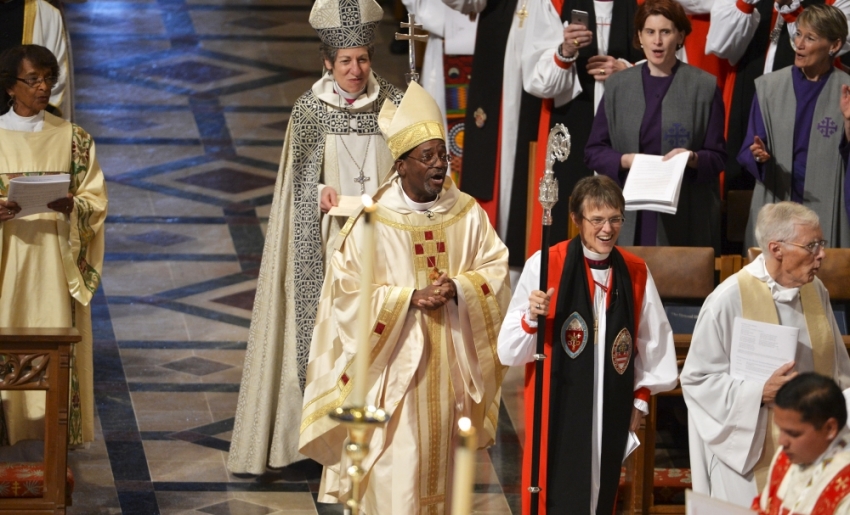Episcopal Prayer Book Changes, Rejecting God as 'Man' Necessary to Fight Abuse of Women, Prof. Claims

A divinity school professor has said that recent talk about gender-neutral revisions being made to the Episcopal Church's Book of Common Prayer has been influenced in part by the MeToo movement.
The Rev. Ruth Meyers, a scholar and professor at the Church Divinity School of the Pacific in Berkeley, California, told Sojourners in an interview Monday that the prayer book should be revised to reflect the changing world around believers.
"It's important because our worship needs to speak to this world that's on fire today and needs to tell this incredible Gospel story that we have and draw people into that Gospel proclamation," Meyers said.
"When I was doing some work with this 'Me Too' committee preparing for general convention, one of the women on my committee talked about being in conversation with one of her peers. And their image of the church was, you know, God is this old white haired old man with a beard and what does [H]e have to do with me? This kind of stilted and narrow vision of God," she added.
"And my friend said, 'Oh, the Episcopal Church isn't like that. We're much more open and accepting and welcoming.' And then this person came to church on Sunday and it was all [F]ather, [H]e, and this imagery of kingship and lordship and not the sense of God that my friend was trying to communicate."
Meyers asserted that it's vital to revise the prayer book so that it reflects God "as we've come to understand God today."
It was announced at the 79th General Convention of the Episcopal Church in Austin, Texas, in July that Church officials are considering revising the Book of Common Prayer to say that God does not have a gender.
Later on during the convention, the House of Bishops passed a resolution encouraging the creation of new liturgies that would preserve the 1979 Book of Common Prayer, which is the last time it was revised.
Meyers insisted in the interview that there is a big connection between the struggle for gender equality in the Church and the words used to describe God.
She claimed that a "strongly patriarchal understanding of God" allows "for abuse of women, sexual harassment, sexual exploitation, and a sense of entitlement by men to women's bodies."
Meyers said that a revised version "could give us new ways of imagining God and understanding ourselves as children of God."
"It could be a real force for proclamation of the [G]ospel to people who don't necessarily think of themselves as Christian. I think it can give us a much deeper understanding and appreciation of creation and our role in caring for creation."
In her interview, Meyers also backed the Episcopal Church's embrace of same-sex marriage.
This support was something which the U.S. body was disciplined for in 2016 by the global Anglican Communion, as it goes against the biblical definition of marriage as being between one man and one woman.
The Episcopal Church was banned at the time from taking part in Anglican decision-making on any issues pertaining to doctrine, and from representing Anglicans on ecumenical and interfaith bodies for three years.
Other denominations, such as the Evangelical Lutheran Church of Sweden, have also moved toward using gender-neutral language for God. A guidance was issued in 2017 telling clergy to avoid masculine terms such as "He" and "Lord" as part of that directive.
Reformed evangelist John Piper, among a number of other prominent Christian theologians, have insisted that God intended Christianity to have a "masculine feel," however.
"God revealed Himself in the Bible pervasively as king not queen; father not mother," Piper said back in 2012 at the annual pastors conference hosted by his Desiring God ministry.
"Second person of the Trinity is revealed as the eternal Son not daughter; the Father and the Son create man and woman in His image and give them the name man, the name of the male," he added.



























